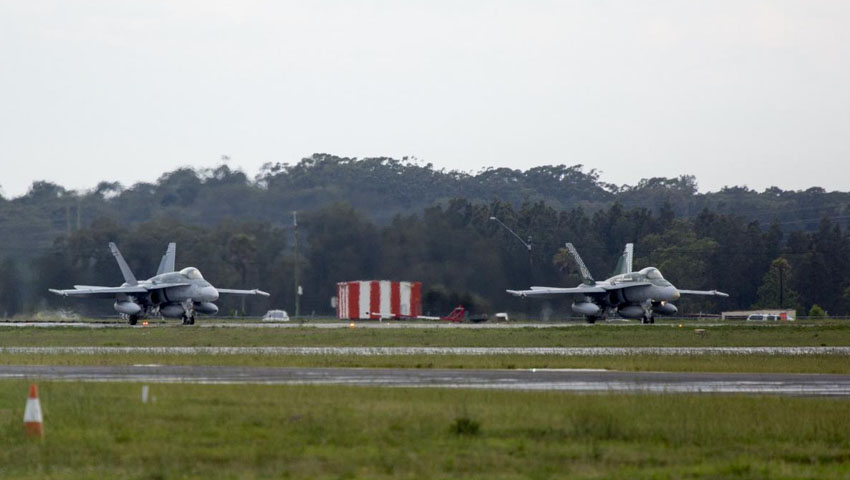Shadow Defence Minister Richard Marles has confirmed the opposition’s national policy framework for managing PFAS contamination around Defence bases, with a $20 million commitment for RAAF Base Williamtown.
To continue reading the rest of this article, please log in.
Create free account to get unlimited news articles and more!
The opposition has said it will ratify the Stockholm Convention on Persistent Organic Pollutants, a global treaty adopted on 22 May 2001 to protect human health and the environment from persistent organic pollutants, including working towards banning the use of firefighting foams containing poly-fluoroalkyl substances (PFAS).
As part of its commitment, Labor has said it will also work to create a national PFAS inventory to identify any current stockpiles, track the use of PFAS in the phase out period, and monitor the disposal of stockpiles.
Labor will improve the PFAS Task Force to make sure it works faster, and reports to government – and the affected communities – more often. Under Labor, the Task Force would publish a strategic work plan, setting out:
- Priorities for research, including key performance indicators;
- Assessment of the services provided to affected communities; and
- Include timelines for activities and reporting. The Task Force will also prepare biannual reports for tabling in the Parliament by the minister.
Labor will make sure the Task Force’s work is informed by science, continue the epidemiological health study underway and establish a longitudinal health study into any potential long-term health effects relating to exposure to PFAS.
Australia’s sample size for both health and remediation research is small, so Labor will also broaden collaboration with international organisations with expertise, including the United Nations and OECD. The priorities for research will be published as part of the PFAS Task Force’s strategic plan.
As part of this process, the opposition also announced a $20 million commitment for PFAS remediation at RAAF Base Williamtown, with Marles saying, "While Defence is working to eliminate the flow of PFAS off the base, Labor’s $20 million Drain Management Plan will remove contaminated soil from the drains and store or dispose of the material off site."
Defence is undertaking a national program to review, investigate and implement a comprehensive approach to manage the impacts of per- and poly-fluoroalkyl substances on, and in the vicinity of, some of its bases around Australia.
From 2004, Defence commenced phasing out its use of legacy firefighting foam containing specific types of PFAS – perfluorooctane sulfonate (PFOS) and perfluorooctanoic acid (PFOA) – as active ingredients. The legacy firefighting foam was used extensively worldwide, and within Australia, from about the 1970s by both civilian and military authorities due to its effectiveness in extinguishing liquid fuel fires.
Defence now uses a more environmentally safe product. Furthermore, Defence has made changes to the way it uses firefighting foam to ensure that the risk of releasing the products into the environment is minimised.
Defence is taking a proactive approach to this matter and is working with Commonwealth, state and local authorities in the conduct of its investigations.
Stephen Kuper
Steve has an extensive career across government, defence industry and advocacy, having previously worked for cabinet ministers at both Federal and State levels.

 Login
Login








